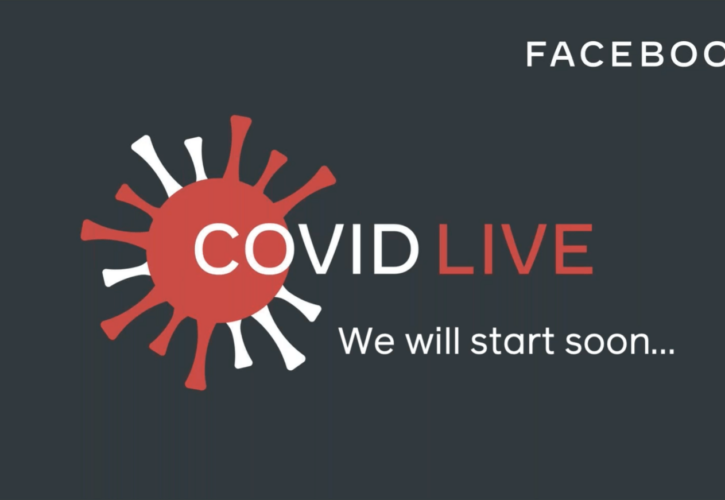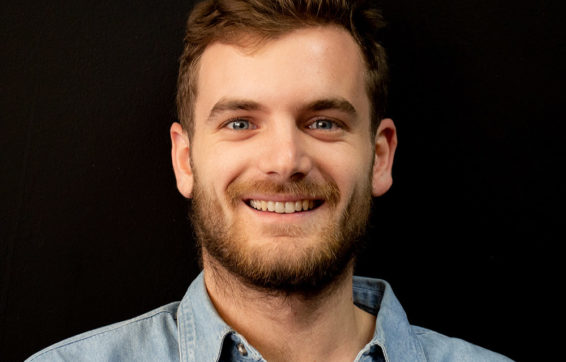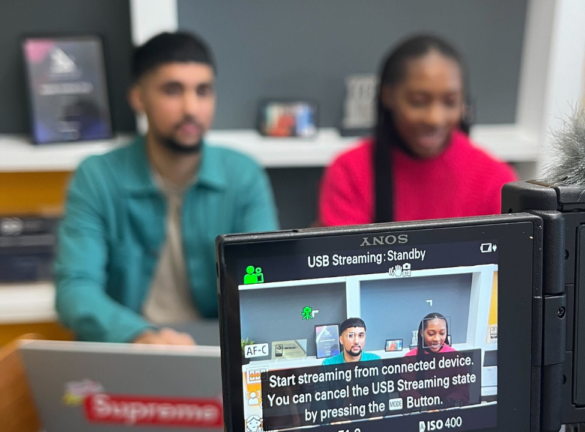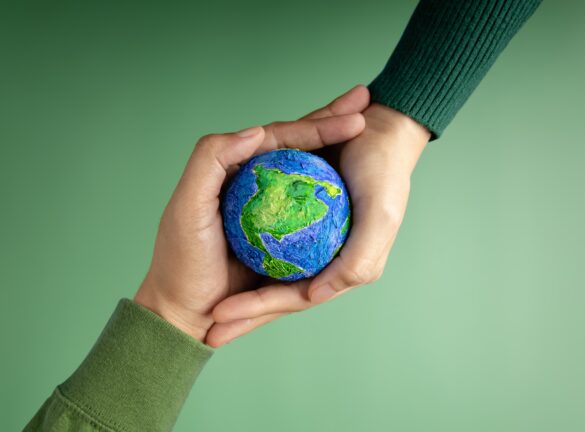
Insights from Facebook EMEA’s fifth COVID LIVE Webinar
Facebook EMEA’s fifth COVID LIVE Webinar was delivered on Wednesday 22nd April. Below are the key insights from the session:
Insight 1 – Globalisation to localisation
As global supply chains are disrupted and billions of people are asked to stay at home, we are seeing a shift in focus from global to local amongst both consumers and businesses.
Data from cloudflare, with areas with decreases in internet usage in red and areas with increases in green, shows the dramatic shift in the distribution of people in London and Berlin, with business centres becoming deserted and the suburbs increasingly becoming places of work:

As movement is decreased, communities are becoming tighter. People are increasingly trying to look after their favourite local businesses. YouGov data from Germany shows that: 32% of consumers have recently ordered from a local business, 10% have donated to a local business and 11% have bought vouchers for a local business.
Many D2C brands were struggling before Coronavirus, with D2C mattress company Caspar notably revealing they were losing hundreds of dollars for every mattress they sold, perhaps, ‘Connect to Consumer’ is the business model that will thrive in and after this crisis.
Takeaway.com, a company whose business model connects local businesses to consumers, are showing signs of growth after an initial dip in their quarterly report:

Across Europe, new ways of supporting local businesses are emerging, from simple solutions like buying vouchers to more complex ideas such as donating your bike ride to a local business as a ‘free community delivery’:
Facebook have also integrated new tickets for food orders and donations into their platforms.
The question we need to keep asking is; ‘What changes will stick after the threat of COVID-19 has faded?’
Will ‘C2C’ be the new D2C? Will local be the new global?
Whatever happens, digital will have a huge role to play in facilitating change.
Insight 2 – Habits are being formed and broken
New habits are emerging fast, and many of these new habits are digital, with 78% of UK consumers spending more time connected on devices and 53% specifically spending more time on their smartphone.
Fascinatingly, the shape of our internet consumption has also changed as the week and weekend merge into one indistinguishable mass of time:
“Traditionally, weekend internet traffic is highly distinguishable from weekday traffic, noted by a two-day hump in traffic, that signature has been eliminated completely.”
Artur Bergman, Executive Chair, Fastly
As the lockdown continues, YouGov’s tracker shows that the majority of behaviours that started increasing have continued to grow. In fact, the only behaviour listed below which is a reduction, is the consumption of news content:

The graph below shows what percentage of people say they have increased or decreased behaviours. The spread shows that different groups are reacting to the virus in markedly different ways. For example, in the UK 22% of people say they are spending more online, but 43% say they have decreased spend. There is no one-size-fits-all consumer reaction to the pandemic:

Some of these increased behaviours will stick after lockdown ends, and consumers are predicting that they are most likely to continue seeing more of their families, spending time on hobbies and reading books. It’s the physical, not the digital, behaviours that people want to hang on to:

Pyschologist Phillippa Lally, in her study of habit formation shows that the median time period to form a habit is 66 days, so as lockdown is extended it does seem likely that some of the behaviours we pick up during the period will stick. What we are seeing is a period of forced experimentation which will likely bring about longterm change.
Insight 3 – Rise of joy substitutes
With 25% of all normal spending either impossible or severely discouraged under lockdown, 4.2 million UK adults are now splashing out more online on treats for themselves .
Conversations around ‘little luxuries’ and ‘little moments of joy’ have increased as consumers find ways to deal with the pressures of this trying time:

Many of these little luxuries involve DIY replacements of normal every day sources of joy. For example, buying premium nail products instead of going to a nail bar, buying oat milk instead of getting a barista-made coffee, or cooking with luxury ingredients rather than going to a restaurant:

Brands are picking up on these needs for little luxuries by providing substitutes for experiences such as meals out and cinema trips:

When times are tough, simple pleasures can go a long way, and the brands who can provide them will win the hearts of consumers.
Thanks to the Facebook EMEA team for another informative session.
For more COVID-19 insights, read our summary of last week’s COVID LIVE, or download our whitepaper on The Effects of COVID-19 on Search Behaviour






